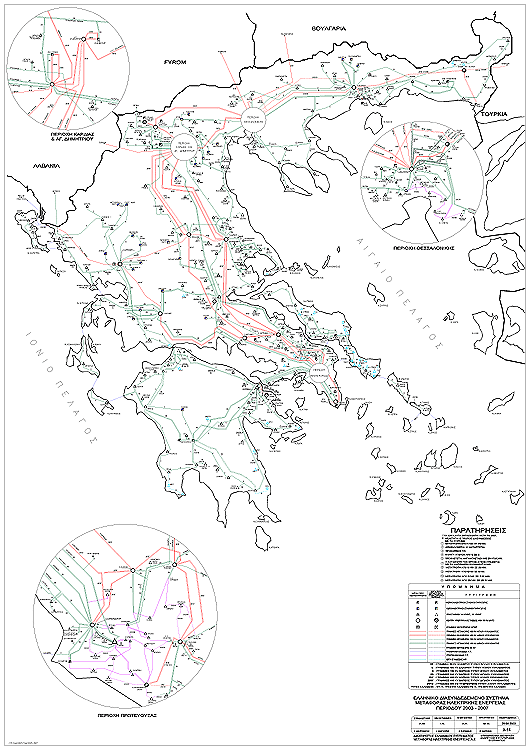
The cable, which will be laid at a maximum depth of 2,700 meters (nearly 9,000 feet), will have a capacity of 1,000 to 2,000 megawatts.Īccording to the ministry, the project is expected to cost a bit more than $9 billion, part of which is to be provided by the European Union, which has recognized the undertaking as a Project of Common Interest. Once completed, the undersea power cable will be the longest and deepest in the world, according to the ministry. “The Euro-Asia Interconnector underwater power cable will allow us to receive electricity backing from the power grids of the European continent in times of emergency, and more importantly will also support our ability to significantly increase reliance on solar power generation, and help us meet the government’s 2030 solar energy targets,” he said.Ĭypriot Energy Minister Natasa Pilides said that the MoU marked “a decisive step towards ending the island’s energy isolation and, consequently, our dependence on heavy fuels.” Wednesday, 10 March 2021 Israel, Cyprus and Greece signed a Memorandum of Understanding (MoU) on Monday regarding a project to link their power grids via the construction of the world’s longest and deepest undersea power cable. Steinitz called the MoU “great news for the citizens of Israel,” according to a ministry statement. The project, called the “Euro-Asia Interconnector,” will help Israel build on more options for renewable energy, contribute to energy security and reduce energy prices, said Israeli Energy Minister Yuval Steinitz at the signing ceremony in Nicosia. Support for the so-called East Med pipeline project has waned amid questions over its feasibility as well as its adverse impact on the environment.Ĭypriot President Nicos Anastasiades said last week that studies on the pipeline’s feasibility were still ongoing, but other alternatives are open to get gas to markets.Īmong the more likely options is to convey Cypriot gas to Egyptian processing plants where it would be liquefied for export by ship.Israel, Cyprus and Greece signed a Memorandum of Understanding (MoU) on Monday regarding a project to link their power grids via the construction of the world’s longest and deepest undersea power cable. The move toward an electricity cable link appears to have supplanted plans for a potential pipeline connection between the three countries to convey gas from existing and potential deposits off Cyprus and Egypt to Europe through Greece. The cable’s first phase is expected to be completed by 2025. The agreement aimed to expedite permits and approvals for feasibility studies and to help the three countries’ national electricity coordinators to cooperate on how best to move forward. Pilides and her Greek and Israeli counterparts signed an agreement last October to speed up technical work on the cable dubbed the “Eurasia Interconnector.”


Pilides said a study shows that the cable in combination with power storage facilities could push Cyprus’ use of renewable energy sources above 50 percent by 2030. With the cable’s completion, it’s expected that more investment will flow into renewable energy sources enhancing the energy mix of Greece, Cyprus and Israel. A community of solvers combining human ingenuity, experience, technology and products to help organizations build trust and deliver sustained outcomes. Pilides said beyond the project’s geopolitical weight, it will ensure Cyprus’ energy security, boost competitiveness in the power supply sector and help the island nation more easily transition to a green economy. Negotiations to transfer the funds are expected to wrap up this summer. Pilides said the money enables crews to start constructing the segment of the cable that will connect Cyprus with Crete whose total cost is estimated at roughly 1.6 billion euros ($1.8 billion). Pilides told reporters the funding is Cyprus’ largest-ever investment as well as the lion’s share of the total sum that the EU’s Connecting Europe Facility, which bankrolls infrastructure projects, has allocated to a single project this year.

NICOSIA, Cyprus-The European Union has earmarked 657 million euros ($736 million) for the construction of a 2,000-megawatt undersea electricity cable that will link the power grids of Israel, Cyprus and Greece, Cypriot Energy Minister Natasa Pilides said Thursday.


 0 kommentar(er)
0 kommentar(er)
